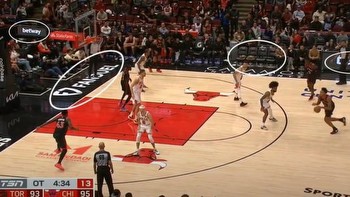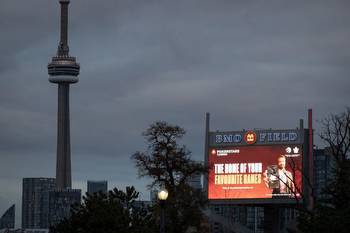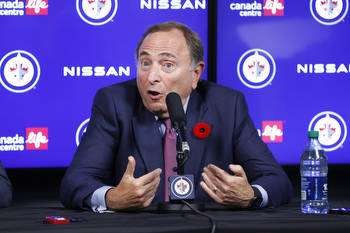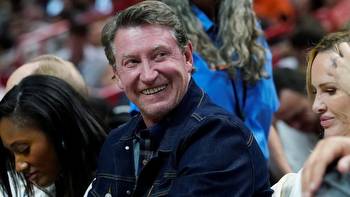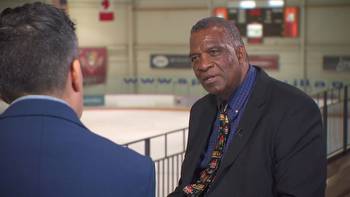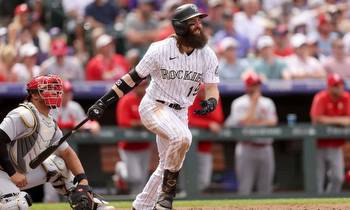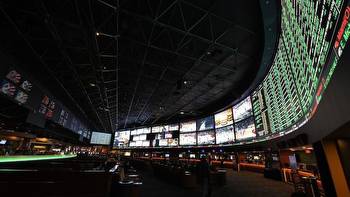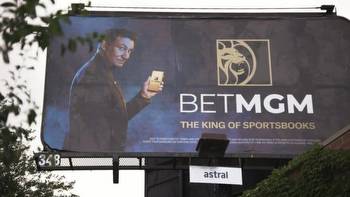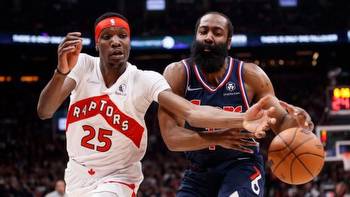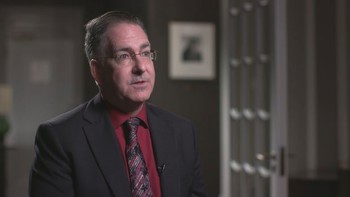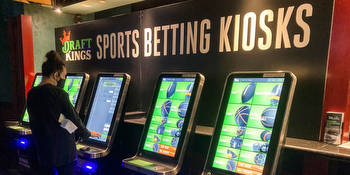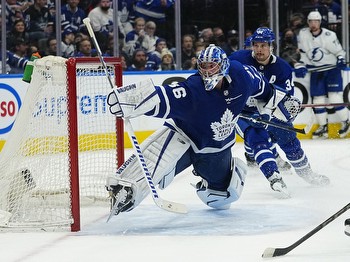As sports betting ads surge in Canada, the quest for order nears Parliament
Raffi, the world-renowned Canadian children’s singer, wanted to talk about sports betting advertising. Over his career, which stretches more than four decades, he said he has never signed a commercial endorsement deal: “I would never advertise to children, because it’s unethical to do so.”
And that brought the conversation back to hockey.
“It’s wrong to have sports betting ads during TV broadcasts of hockey games,” said Raffi. “It’s a family audience. You’ve got impressionable youth and kids watching.”
Two of the NHL’s most marketable stars have signed endorsement deals with sports betting companies, with Connor McDavid (BetMGM) and Auston Matthews (Bet99) both agreeing to terms last year. John Tavares, the current Maple Leafs captain, is a brand ambassador for PROLINE, the sports betting brand for the Ontario Lottery and Gaming Corporation, an arm’s-length government agency. (The Athletic also has a partnership with BetMGM.)
“I hate to say it — I really do,” said Raffi, “but when I now watch Connor McDavid play, even though I enjoy his immense skills, something catches in my throat as I watch him.
“It doesn’t feel right, you know what I’m saying? We shouldn’t even have a hint of negative feeling when we watch someone whose skills we admire in hockey.”
Single-event sports betting has been legal in Canada since 2021, but the rollout was left up to each of the provinces. The tenor of Canadian advertising shifted dramatically when Ontario opened its market just in time for the NHL playoffs last spring.
Commercials for competing sports betting companies filled the breaks between play. Betting content was incorporated into intermission shows — “It’s prostitution of what should be valuable time,” said former “Hockey Night in Canada” host Dave Hodge — along with other segments in the broadcast.
Brian Masse, the NDP Member of Parliament representing Windsor (Ont.) West, is exploring potential ways to address the advertising for sports betting on Canadian airwaves. He said his office is now looking into what levers might be available to the Canadian Radio-television and Telecommunications Commission, among other avenues.
He was one of the early advocates for legalizing single-event sports betting in Canada, and in an interview with The Athletic, Masse said he stands by that position. Canadians were estimated to be placing billions of dollars in wagers in offshore betting houses, he said, and the goal of legalization was to pull some of that money back into a regulated market, while also deflating revenue sources for organized crime.
The goal was also to support Canadian casinos — and the many workers they employ — in competition with counterparts across the border in the United States, which was also moving toward legalization.
Once the rollout began, Masse knew a wave of advertising would follow: “I didn’t anticipate the level or volume of advertising, and then the NHL, in particular, with active players jumping in this way.”
He said his focus is on current players who are partnered with betting houses, along with ads or betting content that is hitting the airwaves during the broadcast of the game itself.
“I just feel that these two things need to be harnessed into place for us to be able to do this responsibly,” said Masse. “It is difficult to watch. I still stand by what we did. I think it’s more now about implementation, and we should take some lessons from Europe.”
Masse recently appeared in an episode of “The Fifth Estate,” the CBC’s flagship news magazine show, as it explored some of the lessons Canada might learn from the United Kingdom, where sports betting has been legal for more than a decade. The program highlighted the risk of gambling addiction, as well as reactionary measures enacted by the government, including limits on who can endorse sports betting products, and when.
In North America, the major professional sports leagues have adopted different rules on whether active players can advertise for gambling companies. In an email to The Athletic, an NFL spokesperson said the league does not allow active players to appear in commercials promoting sports betting.
Active NBA players are prohibited from owning interests in — or endorsing — any product that allows for betting on NBA games. In Major League Baseball, players are allowed to appear in commercials, but not in uniform, and not in anything that promotes betting on the game.
A spokesperson for the Canadian Football League said its policy is still being finalized.
In Canada, NHL players have the highest profile in the sports betting space.
“Current NHL rules do not prohibit players from appearing in ads for Sportsbooks under specific circumstances and subject to relevant laws and codes,” the league wrote in an email to The Athletic. “We have negotiated extensively with the NHLPA over how, and on what terms, we can and will permit these types of relationships, and have incorporated appropriate and sufficient safeguards to ensure the continuing integrity of our on-ice competition.”
Wayne Gretzky, the retired NHL legend, has also become a leading face for the sports betting industry in Canada, has appeared in several commercials for BetMGM. (One, in which he co-stars with McDavid, has been on regular rotation on Canadian television this season.)
“I don’t understand the NHL in this, because they were one of the biggest proponents against having some kind of a legal system — even though they went to DraftKings and other types of online betting before others,” Masse said. “And at the same time, now, they are really the most aggressive and wide-open policy when it comes to this type of behaviour.”
Before a recent Leafs game at Scotiabank Arena, in Toronto, a betting-themed promotion was held just before the teams skated onto the ice for the pre-game warm-up. It played out on the video board above centre ice, serving as a focal point for any fans already in their seats, regardless of their age.
“I respect children as people, and I want the best for them,” said Raffi. “We know the harms of direct advertising to kids — especially to young children, who are my constituency — who are not old enough to appraise the pitch being made to them.
“That’s exploitation. It’s the last thing one should do. I would never even consider it, even for a moment. I’ve turned down lucrative commercial offers in the blink of an eye, because that’s not what I’m about.”
Raffi, who was born Raffi Cavoukian and is a member of the Order of Canada, said that while sports betting does not appeal to him, he understands it is an individual choice for adults to make. He said he also understands that while the wave of advertising for sports betting is not directly aimed at children, its placement in NHL games will reach them, nonetheless.
“In sport, you’re watching the drama, which is real,” he said. “And that ought to be enough to enjoy the sport. The sport certainly doesn’t need the added tension of this dubious sports betting practice, let alone during televised broadcasts of the game.”

